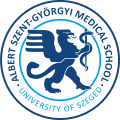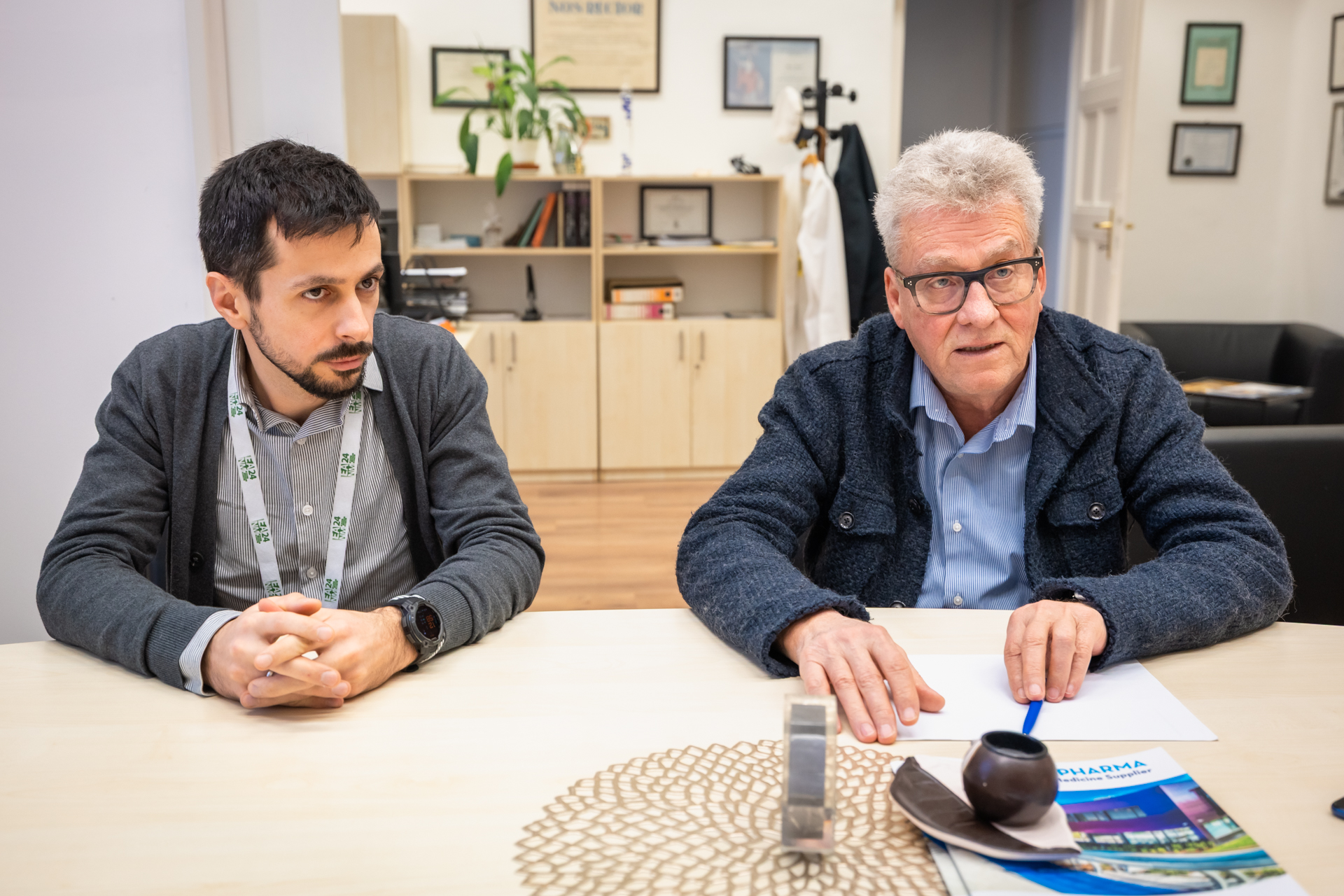University of Szeged
Albert Szent-Györgyi Medical School
Foreign Students' Secretariat
Your Education. Our Mission.

"A researcher must believe that he can create something new" - interview with Prof. Dr. Lajos Kemény
In 2022, the Foundation for Szeged (Szegedért Alapítvány) honoured citizens of the University of Szeged (SZTE) in all categories - on 15 March, the top prize was awarded to the world-famous biochemist Katalin Karikó, research professor at the University of Szeged, and the work of Prof. Dr. Lajos Kemény, dermatologist, Dr. Károly Szatmáry, astronomer and Mária Temesi, opera singer was also honoured.
In 2022, the Scientific Board of Trustees of the Foundation for Szeged awarded the Béla Szőkefalvi-Nagy Prize to Prof. Dr. Lajos Kemény, dermatologist, academician, professor at the Albert Szent-Györgyi Medical School, SZTE. The award was presented by Dr. László Vécsei, Chairman of the Scientific Board of Trustees.

- For the 33rd time, the Foundation for Szeged has awarded individuals who have excelled in shaping the spirit of the city, enriching its scientific, cultural, artistic and social life, preserving its values, and who have brought fame and appreciation to the city of Szeged and the University of Szeged. How did you feel on finding out that you had received the Foundation for Szeged award from your hometown?
- I have received many awards, and I was delighted for different reasons. But the Foundation for Szeged award is a recognition coming from the people of Szeged, which makes it special for me. Such a recognition proves that what I have done in the past decades as a doctor, researcher, teacher and human being has been worthwhile.
- From the experience you have gained over the past decades, what would you like to pass on to your students?

- Do you have any hobbies that are not related to your profession?
- For me, research is that extra something. Of course, I like good films, exercise, family gatherings; these are the things that, in addition to my profession and my hobby, i.e. research, complete my everyday life and give me the opportunity to relax.
- Have you had to make sacrifices or ever give up this particular hobby for your family?

- What are you working on at the moment?
- Basic research is still focused on psoriasis, but my research group at the Hungarian Centre of Excellence for Molecular Medicine (HCEMM) is working on the memory of the uppermost layer of the skin, the epithelium, concerning previous inflammatory effects. In addition, other research closer to actual patient care investigates different cell therapies to find out how for example cells extracted from the adipose tissue can be used in patient care. This latter research has recently yielded new results.
- To what extent has the coronavirus epidemic changed people's attitude towards researchers?

- Have people become more open to different kinds of research and to the practical application of its results?

- How important is faith in research?
- Scientific results are not based on faith, but on solid evidence. But whether or not researchers believe that they can create something does play a big role. In patient care, however, faith is very important, because if patients believe that a certain medication or therapy will help them, it contributes to recovery.
- What is your most memorable experience of patient care over the past decades?






